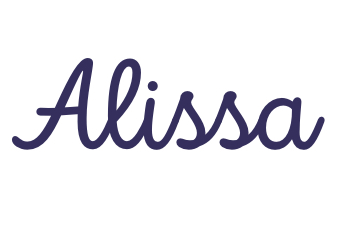Although I am a licensed attorney, I do not practice law. Yet, I combine my passion for personal finances by helping people as a licensed registered investment advisor and providing holistic wealth advising for goal-oriented individuals. This blog aligns with my passion for sharing my knowledge with goal-driven individuals looking to enhance their financial literacy and amplify their wealth. Welcome!
Are you ready to simplify your finances, achieve your financial goals, and amplify your wealth? Let’s connect! Click the link below to schedule your free 15-minute consultation.
Ask Alissa
Join the Amplify My Wealth community on Instagram and Clubhouse for even more tips, and connect and interact with me on LinkedIn and Clubhouse to learn more ways to amplify your wealth!
Hoarding Cash: Is It Costing You?
August 7, 2023

Have you ever wondered if you will have enough money? Hoarding cash may contribute to you not having enough money for your future self. Cash can not keep up with inflation or grow as often necessary to attain most long-term goals, such as retirement.
Analysis Paralysis

Imagine feeling unsure about whether or not you should invest your money. That’s analysis paralysis when you are stuck or unable to decide what actions you should take with respect to investing. Some people fear losing money, so they hide it or keep it in the bank or money market. But there’s a cost to this. By keeping money idle, it doesn’t grow, and inflation makes it worth less over time. Rather, you can partner with a financial advisor to empower yourself with knowledge, a plan, and advice.
Your Opportunity Cost Of Hoarding Cash

Whether intentionally, unknowingly, or due to analysis paralysis, hoarding cash may result in opportunity costs. Opportunity cost is the loss of potential gains due to your choice over other alternatives. Concerning hoarding cash, your opportunity cost may be interest or gains on investment you otherwise would have realized.
Over time, your loss of potential gains compounds compared to your ability to amplify wealth. For example, $50,000 in cash, a high-yield savings account yielding 5%, and a diversified portfolio yielding 8%. Respectively each of these will have a value of $50,000, $81,444.73, and $107,946.25. The opportunity cost is more significant over twenty years with the same returns; the results are $50,000, $132,664.89, and $233,047.86.
What Should You Do With Your Cash?

Your regular financial checkups will help ensure, amongst other things, that you avoid regrets of a potential opportunity cost. Set regular reminders for yourself to check in on your money and with your financial advisor. Prioritize ensuring your returns correlate with you reaching your goals and align with your time horizon and risk tolerance.
Although considering the impact of potential opportunity cost is important, sometimes your money should be in a high-yield savings account. For example, money for your emergency fund and short-term goals is best in an FDIC-insured high-yield saving account earning more than cash.
While hoarding cash may provide a sense of security in the short term, it comes with a significant opportunity cost. Ultimately, you miss out on potential opportunities for growth and wealth-building, reducing its value. Strike a balance by making smart investment choices with a fiduciary financial advisor to help you amplify your wealth.
